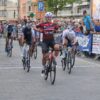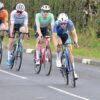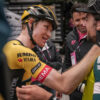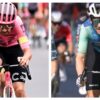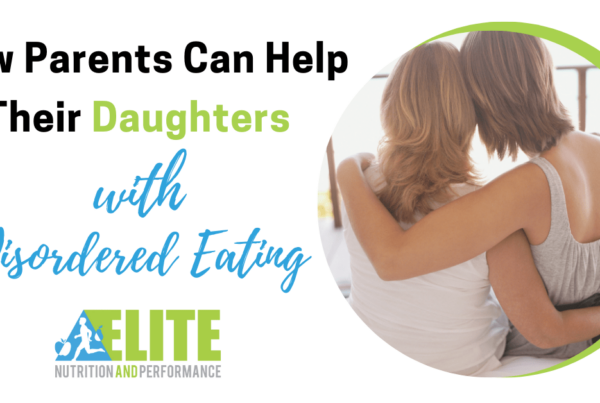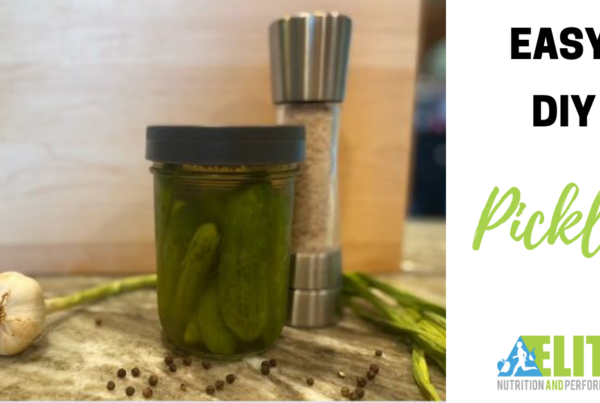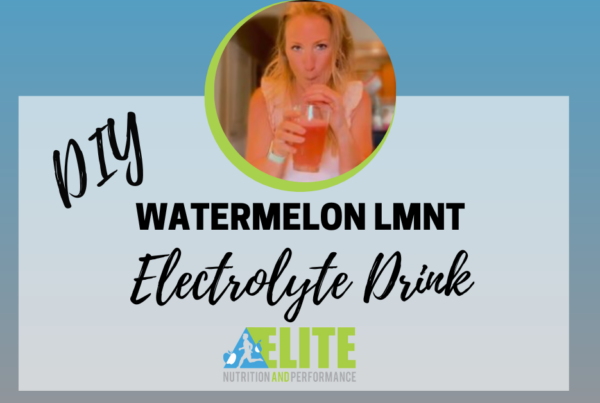Join me and Lindo Bacon as they share their process of being able to live authentically, assert themself, and how diet culture and fatphobia is a form of body-based oppression. They also talk about why being your authentic self is a privilege and how we can navigate and think about our intersecting identities in an unjust world.
WATCH the interview recording, part of the IG Live Series to celebrate my book launch. PURCHASE my book Unapologetic Eating here.
Alissa: Hi everyone, welcome to the Unapologetic Eating interview series today with Lindo Bacon. We are going to be talking to them about their new book. I’m so excited to chat with you today and thank you again so much for joining me and being open to doing this.
Lindo: Awesome to meet you, Alissa. Glad to do it. Thank you.
Alissa: I have been a big fan of your work for years. Personally, my first foray into the weight inclusive space was through your books, Health at Every Size and then Body Respect. I just got my copy of your newest book, Radical Belonging, which came out in November. It is so fantastic. So I’m so honored to be chatting with you. For those that don’t know you or aren’t as familiar with you and your work, could you just share a little bit more about yourself and what you do?
Lindo: You mentioned my three books, and that sums up the kinds of things that are important to me. For my academic background, I’ve studied this whole issue of weight and how we are in our bodies from a lot of different perspectives. I have a PhD in physiology, a master’s degree in psychology, and another master’s degree in exercise science. I’ve been able to look at it through a multidisciplinary lens at why it is so hard for so many of us to appreciate our bodies.
That’s where my first book Health at Every Size came from. My second book, Body Respect, which was co-authored with Lucy Aphramor, was updating that. Health at Every Size is now 12 years old, so Body Respect was looking at it from a more modern perspective that was missing the first time around, mostly around having a social justice lens and also being more trauma-informed.
I realized weight is just one form of body-based oppression. In my second book with Dr. Aphramor, I get across the parallel issues people are facing through so many different forms of marginalization. There are so many ways in which we’re cut out of full belonging in this society. Not just to me, but based on physiology, that is the most important thing to humans. We all need to belong. That’s why it became so important for me to expand the frame in this last book to just talk about that issue of belonging and why it’s so difficult for us.
Alissa: Thank you so much for explaining that. It’s really interesting to hear that progression from Health at Every Size to Body Respect to Radical Belonging – pulling out that weight-based oppression is still a piece of it, and acknowledging and talking about all these other ways that humans are oppressed and marginalized. For me, it’s been just in the last few years that I’ve come more to the social justice piece of it, understanding all these different intersecting oppressions and how this affects us as humans.
Living Unapologetically
Alissa: I would love to hear from you the first question I’ve been asking everybody as part of this series is, what does being unapologetic in your life mean to you?
Lindo: First hearing that question right now, I don’t think being unapologetic is something I want to strive for, or a good trait or value. I’ve made mistakes. I mean, there’s things I want to be apologetic for. I think it’s important that we never lose sight of that. That said, I imagine the intent that you’re looking for is something different. What you’re looking for is this whole idea of being able to live our lives with integrity, so that everything we do is the stuff that we’re proud of.
That to me is really, really important. So if I could combine the two points, there’s definitely stuff I look back on in my life that I feel very apologetic for, and because of the pain of having hurt people and seeing the wrong and what I’ve done, I’ve moved more into integrity so that I don’t do those things anymore. I’ve learned from that, and it’s made me a better person.
Showing Up Authentically
Alissa: Thank you so much for sharing that. I’m going to read a part from your book about showing up authentically and being ourselves. You say, “We’re encouraged to be ourselves to show up authentically, but that a call to authenticity is politically laid in and the path heavily influenced by privilege and disadvantage. It’s a lot easier to be your authentic self when the world tells a story that your authentic self has value.” There’s nuance to that. For me, as a white, thin, cis-gender, hetero woman, I see my story all the time, so it’s a lot easier for me to know what living authentically is like or living unapologetically how I want to. But for someone without those kinds of similar privileges, can you share a bit more about that?
Lindo: I’m glad that you’re bringing this up because honestly, it was kind of mind-blowing for me to learn because I have so much privilege in the world. It’s easy for me, in some ways, to go out in the world and just be me. Yet, that’s not entirely true because there is one big way in which I don’t have a privileged status, and that has to do with my gender identity. Much of the world sees me as a woman and that’s not something I’ve ever related to. It just doesn’t feel like me and who I am. I feel like every time I’ve tried to assert myself and say, hey, that’s not me, I used to get a lot of kickback for that.
For example, when I was a kid, I didn’t meet the ways in which I was supposed to be a girl, like dressing and wanting to wear my brother’s bar mitzvah suit to my bat mitzvah, coming of age ceremonies for Jewish kids, and getting the extreme center for my parents because they were so ashamed of me and didn’t want me to bring that into the world where their shame would be public. I just learned over time that it wasn’t safe to show that part of myself, and it wasn’t. My parents wanted to get me shock therapy back when I was a kid to save me from what they perceived as lesbianism. They were really seeing my gender identity, but they read it as sexual orientation, so it wasn’t safe.
So, the healthy thing for me to do as a kid is to hide that stuff away and not deal with it. I want to reinforce that at that point, inauthenticity was a sign of health. I couldn’t have survived my childhood otherwise. Now as an adult, it’s different. I found the people, my community, and who I am is just normalized. In the world that I’ve created for myself, I don’t have to keep asserting myself. I just am, and I’m seen. Well, that’s not entirely true because that’s only in the protected pocket that I have. I get misgendered on a daily basis, and I constantly have to make a choice. Is it worth it for me to correct this person? Or do I just move on, and this isn’t so important to me?
Asserting Themself and Finding Acceptance
Lindo: That’s not to say that I’m not inauthentic in that way. Not everybody may see me for who I am, but that’s not because I’m not authentically living my truth. I’m doing more these days to assert myself so that people do see me. That feels really exciting and publishing Radical Belonging was a really important part because in this book, I do completely assert myself and tell people, this is who I am. It’s changed things for me in the professional community where people used to make all those assumptions about me. They’re not doing it as much anymore, and it’s really beautiful because I have actually gotten a lot of acceptance.
Partly, the issue was asserting myself helped me find more acceptance. If people can’t see us, they can’t love and appreciate us for who we are. There’s a little bit of a loneliness thing that has been taken away now because I am being seen and valued for who I am, whereas you can’t be if people don’t see you. So inauthenticity has its pain point. The more we can all move towards authenticity, that’s wonderful. It’s really sad that we live in a culture where not all of us have access to the safety of authenticity.
Alissa: Yeah, not everybody has the safety to be able to live authentically. I definitely recommend everybody to get Radical Belonging because this did feel so much more personal. This really felt like you sharing your story, and I love how you put that as asserting yourself.
A Call to Arms
Lindo: One of the main reasons in writing this book too, was not just for me, but to have other people see themselves too, and to help people navigate that whole journey of how to move more into your authentic self, how to love yourself, and bolster yourself, and when you make a choice not to, too. So it’s about how to manage the fact that the world doesn’t treat us well sometimes and that there’s a lot of injustice out there. In addition, what we can do about that, how we change the world, and how we live in a world that’s not entirely the way we want it to be and entirely respectful.
Alissa: I love this book so much. It feels more like a call to arms, not only for individuals on how to survive in this unjust world but also as a collective, what we can all do to make everybody feel belonging.
Lindo: One of the things that was really important to me in this book was acknowledging that my community is dealing with issues around weight and feeling uncomfortable in their bodies for that reason. I really wanted to normalize weight as one of the many forms of body oppression because in the social justice world, they are just as fat phobic, typically, as most other places. I wanted us all to see that this is just part of the picture and that most people struggle with weight regardless of what size they are of. Although, of course the issues are much different depending upon where you are on that size spectrum. I don’t want to say that everybody’s got that same experience.
So people coming to my work, because they’re interested in that, will also see the interconnections between that and a lot of other ways in which we’re oppressed and we’re told that we’re inadequate. I think it’s helpful for us to situate ourselves, in which we’re marginalized or scared and in ways in which we have power, even if we’re not even aware of it. I think that there’s a lot of things that slender people do and say that they’re not aware of that make it harder for fatter people to be in their bodies. We all have this constant reckoning with the ways we’ve absorbed these toxic cultural values. I’m hoping that the book is helping people on all those levels, in which we’re marginalized and we’re privileged to just figure out how we can take responsibility in some ways and manage in other ways.
Divesting from Diet Culture
Alissa: Totally. You’ve talked about this a little bit, but can you speak a bit more on how the diet culture piece is a form of oppression? I’m curious to hear a little bit more of your journey as you’ve divested from diet culture. You talked a little bit about this in the book too, divesting from the diet culture piece of it and coming more into your own authenticity and asserting that. What shifted or changed or opened up in your life as a result of that?
Lindo: I’d say that the biggest thing that opened up in my life was more time and energy. When you’re spending time focused on what you’re going to eat or not going to eat, or disliking your body, that just zaps you of time, energy, and from the things that are important in life, like your relationships with people. It zaps you of the ability to have good sex. Endless things have opened up to me when I’m in the divestment. I want to say that divestment is not something that’s all or nothing, and it’s not something that just happens. We go back and forth, and life’s a journey.
Alissa: I’m always saying, it’s not this linear line. Thank you so much for sharing that. This past year, I’ve been hearing from a lot of people who are realizing that relationships can change in such a positive way when you open up. A lot of people are realizing they’ve been spending a lot of time and energy, whether it’s a diet culture related or otherwise, and want to come back to what’s important to them. Continually choosing and working through this divestment from societal oppression that’s been put on us opens up this space to really be able to choose what you want to do with that time.
Leaving a Legacy of Love and Connection
Alissa: My last question for you is, thinking about people listening who are somewhere on this journey, what words of wisdom or piece of advice would you like to leave them with?
Lindo: When I think about what I want my legacy to be, it’s really about love and connection. The most important thing is that I brought more love into the world. We’re at a really difficult time in history right now where we’re reckoning with social justice issues and racism, and these are so, so important. It’s not like racism is a new thing, like what’s hitting the news is stuff that’s always been around, but it wasn’t talked about before, and this wonderful opportunity now that it’s in the forefront.
I’m just feeling in some ways it’s creating more divisions because people are rightfully so feeling more of their righteous anger. They’re allowed to feel anger now that it’s being recognized. I’m just wondering when we feel that anger, that anger is because we’ve been traumatized for so long. I shouldn’t actually say we, because it’s people of color that are experiencing this much more than me. I am a very privileged person. I just want us to emphasize that our pain can easily separate us even more. Maybe in some ways that’s good because maybe people that have been hurt need to find more community separate from living in the toxic culture.
Let’s come together in our identity groups and share our pain and all that kind of stuff. Wherever you can find love, make that happen. I guess that’s my final point. It may just be that you have to go into your safe community and that’s where your loving community is. It may be too that you can find ways to get that love and community with other people to make those dialogues happen. That’s what I want for us all. I just want more love and connection. For those of us who feel kind of the trauma from disconnection, which, which I do in many ways, I really want to make sure not to get stuck in my anger, but to let people in, so when people misgender me, I don’t want like that first reaction where I get so angry.
I want to be able to temper that and then speak to that person because in many cases, people aren’t doing it out of a sense of intention. They want to see me, but how hasn’t just been accessible to them. I guess my goal is to be more patient with people around so that I can connect. I don’t necessarily want to recommend that to everyone because I can also understand how historical traumas would just build and I can also understand how many people won’t respect you. I think based on all of our intersecting identities, I want to support everybody in the choices that they make. That’s one of the things I’m just being much more thoughtful about for myself, personally and it’s been really beautiful to see all of these little ways that I didn’t expect to find love and belonging but was able to when I was patient, open, and tried.
Alissa: Thank you so much for sharing that. Depending on someone’s lived experience and what’s happened to you, anger is often a needed step in the process, but I love how you’re speaking to, whether it is in your own community you build, finding that love and connection, of speaking to some of the things that have opened up that you’ve learned when extending outwards more, too. This was such an amazing conversation, and I know people watching appreciate it as well. One more call for Radical Belonging. I highly recommend it! Get your copy! Again, Lindo, thank you so much for joining me.
Check out the rest of the Unapologetic Instagram Live Interview Series here: www.alissarumsey.com/live-series. You can also purchase a copy my book Unapologetic Eating here.


